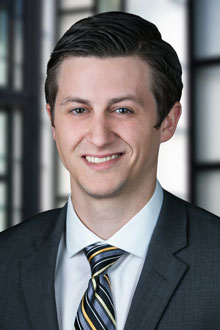2022 Texas Labor & Employment Year End Review

Dallas, Texas (February 2, 2023) – The Texas legislature operates under a biennial system and holds regular sessions every other year, in odd-numbered years. As the Texas legislature was out of session in 2022, this year-end review focuses on selected case law developments impacting employers in the Lone Star State.
Texas Supreme Court Rules Procuring-Cause Doctrine Governs Post-Termination Cause Doctrine Governs Post-Termination Payment of Commissions When Agreement is Silent
In May 2022, the Texas Supreme Court held that in the absence of specific language defining when a commission payment is earned or whether it will be paid after termination of employment, the “procuring-cause doctrine” applies. See Perthuis v. Baylor Miraca Genetics Laboratories, 645 S.W.3d 228 (Tex. 2022). Under this default rule, an employee will be entitled to a commission on sales for which the employee is the proximate and but-for cause of the sale, even after termination of employment. This means an employee could receive commission payments for a stream of sales that they “set in motion” such as binding multi-year contracts, provided there are no intervening negotiations or modifications. The Texas Supreme Court emphasized that the procuring-cause doctrine is merely a default rule when the commission agreement is silent about any exceptions to the obligation to pay commissions. Parties generally remain free to structure their commission agreement as they choose, including conditioning payment of commissions on some other term, such as continued employment or the closing of a sale or receipt of funds during a particular timeframe.
Well-drafted commission agreements clearly define the terms of the agreement. In order to avoid the consequences of the procuring-cause doctrine, Texas employers should review their commission agreements to ensure all payment terms are well defined, including how the commission will be calculated, when the commission is deemed earned, and whether and under what circumstances commissions will be paid, including during leaves of absence or after separation of employment.
Fifth Circuit Rules COVID-19 Not a “Natural Disaster” Under Federal WARN Act
On June 15, 2022, the U.S. Court of Appeals for the Fifth Circuit held that the COVID-19 pandemic is not a “natural disaster” as defined under the federal Workers’ Adjustment and Retraining Notification (WARN) Act. See Easom v. US Well Services, Inc., 37 F.4th 238 (5th Cir. 2022).
The WARN Act generally requires covered employers to give affected employees 60 days’ notice before a plant closing or mass layoff. One exception to this advance notice requirement is when the layoffs are triggered by “any form of a natural disaster.” Although the WARN Act does not specifically define “natural disaster,” the statute and U.S. Department of Labor implementing regulations provide that floods, earthquakes, droughts, storms, tidal waves, tsunamis, and similar effects of nature are natural disasters under this provision.
At the outset of the COVID-19 pandemic, many employers looked to this exception when they laid off employees without the required advance notice. Unfortunately, there was little guidance regarding whether the pandemic would qualify as a “natural disaster” and, as expected, the issue ultimately became the subject of litigation throughout the country.
The Fifth Circuit Court of Appeals was the first federal appellate court to directly address the issue. Relying on principles of statutory construction, the Fifth Circuit noted exceptions to the advance notice requirement must be narrowly construed and declined to expand the definition of “natural disaster” beyond the WARN Act’s statutory language, context and purpose. The court concluded that “the appearance of ‘natural disaster’ in a list with ‘flood, earthquake, or drought’ suggests Congress intended to limit ‘natural disaster’ to hydrological, geological, and meteorological events. Because Congress was familiar with pandemics at the time of the WARN Act’s passage, the Fifth Circuit reasoned that Congress could have included terms like “disease,” “pandemic,” or “virus” in the examples listed. According to the Fifth Circuit, Congress’ decision not to do so justified the inference that those terms were deliberately excluded.
Relatedly, the Fifth Circuit also addressed the causation standard for the “natural disaster” exception. Relying on U.S. Department of Labor regulations and binding precedent, the court found that for the “natural disaster” exception to apply, employers need only show that the “natural disaster” was a direct or proximate, rather than “but for” cause of the layoffs.
Although COVID-19 may not qualify under the WARN Act’s “natural disaster” exception in the Fifth Circuit (which covers Texas, Louisiana, and Mississippi), it is not clear whether other jurisdictions will follow the same reasoning. The Fifth Circuit also has not yet addressed whether COVID-19-related layoffs may qualify for the WARN Act’s other exceptions such as “unforeseen business circumstances.” Compliance with the WARN Act is fact-specific and the COVID-19 pandemic as well as remote work arrangements have only served to complicate its application. Accordingly, employers contemplating reductions in force should consult counsel early in the decision making process to ensure all federal, state, and local law requirements are satisfied.
Fifth Circuit Opinion Clarifies Protections from Pretrial Discovery for Defendants Asserting Qualified Immunity
On November 30, 2022, the U.S. Court of Appeals for the Fifth Circuit issued an important decision that clarifies the procedure for public officials asserting qualified immunity at the motion to dismiss stage. See Carswell v. Camp, 37 F.4th 1062 (5th Cir. 2022). Because “qualified immunity is more than ‘a mere defense to liability,’” it is “an immunity from suit” that, among other things, provides “protection from pretrial discovery, which is costly, time-consuming, and intrusive.” The Carswell court held that “[w]hen defendants assert qualified immunity in a motion to dismiss, the district court may not defer ruling on that assertion. It may not permit discovery—‘cabined or otherwise’—against immunity-asserting defendants before it has determined plaintiffs have pleaded facts sufficient to overcome the defense.” Rather, the “rule is that ‘a defendant’s entitlement to qualified immunity should be determined at the earliest possible stage of the litigation’—full stop.”
The court further held “where the pleadings are insufficient to overcome QI, the district court must grant the motion to dismiss without the benefit of pre-dismissal discovery. Similarly, where the pleadings are sufficient to overcome QI, the district court must deny the motion to dismiss without the benefit of pre-dismissal discovery.” In the latter scenario, the court clarified that a defendant has at least two choices: (1) immediately appeal the district court’s denial of qualified immunity to the Fifth Circuit; or (2) move the district court for discovery limited to the factual disputes relevant to whether qualified immunity applies, then reassert qualified immunity in a summary judgment motion.
Further, in cases where the district court finds itself “unable to rule on the immunity defense without further clarification of the facts,” the Carswell court held the district court may order discovery “narrowly tailored to uncover only those facts needed to rule on the immunity claim.” Nonetheless, the Fifth Circuit cautioned this “careful procedure” is “only to allow the district court to rule on the defendant’s assertion of QI,” and “not to provide a backdoor for plaintiffs to circumvent the defendant’s immunity from suit.” Thus, “where the QI-asserting official determines that any pre-ruling discovery sought or ordered in the district court crosses the line from permissible,” narrowly tailored discovery “to impermissible vitiation of the official’s immunity from suit, the collateral order doctrine authorizes an immediate appeal.”
The Carswell opinion reinforces the rule that qualified immunity must be adjudicated at the earliest possible time and that a plaintiff asserting constitutional claims against a governmental official claiming qualified immunity must survive the motion to dismiss stage without any discovery. Thus, the Carswell opinion benefits governmental entities and officials by prohibiting discovery against immunity-asserting defendants before the district court rules on the officials’ qualified immunity defense.
Full Fifth Circuit Rehearing Case to Determine What Constitutes “Adverse Employment Action” in Disparate Treatment Discrimination Claims Under Title VII
Title VII disparate treatment claims are limited to those where there has been an “adverse employment action.” Under precedent from the U.S. Court of Appeals for the Fifth Circuit, such actions are limited to “ultimate employment decisions” such as hiring, granting leave, discharging, promoting, or compensating. Citing this precedent, a Fifth Circuit panel reluctantly held that a gender-based scheduling policy was not unlawful discrimination. See Hamilton et al. v Dallas Cnty., 42 F.4th 550, 2022 U.S. App. LEXIS 21502 (5th Cir. Tex. Aug. 3. 2022). The scheduling policy at issue gave both male and female detention officers two days off per week, but – citing safety concerns – gave only male employees the option of taking the entire weekend off. Although the gender-based scheduling policy was facially discriminatory, the Fifth Circuit panel ruled it was bound to follow Circuit precedent and held that the scheduling policy did not relate to an “ultimate employment decision” and, therefore, was not actionable.
The Fifth Circuit panel noted, however, that the factual and legal issues presented in the case made it an “ideal vehicle” for en banc or full panel review, particularly as the Fifth Circuit’s “ultimate employment decision” standard is more narrow in scope than other circuit courts. A majority of the Fifth Circuit judges agreed and granted the plaintiff’s petition for rehearing before the entire U.S. Court of Appeals for the Fifth Circuit. Oral arguments were heard on January 24, 2023. Based on the line of questioning, the court appears open to revising its existing standard while still providing some check against claims based on petty slights. Stay tuned to see how the court rules.
For more information on these developments, contact the authors or editors of this alert. Visit our Labor & Employment Practice page for additional alerts in this area.
Authors:
Nicole Zerunyan, Associate
Brett Miller, Associate
Sean O. Braun, Associate
Editors:
John M. Lynch, Partner
Diane L. Waters, Parter



